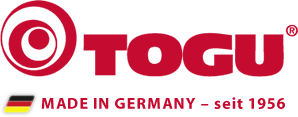What is fascia training?
Fascia training is a method to strengthen the entire body, improve mobility and relieve pain. It involves treating and strengthening fascia - the elastic layers of tissue that surround muscles, bones and organs.
This method uses special exercises and training equipment to stretch and strengthen the fascia. This can improve flexibility, relieve pain and reduce the risk of injury.
Fascia training is a simple and effective way to strengthen the body and mind. It is especially useful for people who frequently sit or stand for long periods of time, as it promotes blood circulation and prevents muscle shortening.
What are fasciae?
The term fascia comes from the Latin word "fascia" and means "ligament or bundle". The fascia tissue consists, among other things, of water, collagen fibers and various adhesives. This combination makes the tissue elastic and slippery. This allows muscles to move smoothly and organs to shift more easily.
Fasciae are interspersed with nerve fibers and have a direct connection to the autonomic nervous system. They can also be called "outposts of the autonomic nervous system". The autonomic nervous system controls vital functions such as breathing, digestion, heart, etc.
The fasciae shape our body. They are the changing basic matrix and adapt to different stresses of the body. They connect the whole body with each other. An agglutinated calf fascia often moves down the leg to the back and possibly even further to the shoulder.
Effects on stress
In addition to physical benefits, fascia training can also have a positive effect on stress. Consciously tensing and relaxing the fascia can create a pleasant body sensation that can help reduce stress.
When should you not do fascia training?
Although fascia training is usually safe, there are some cases where it is better not to do it. If you are suffering from an acute injury or illness, you should first talk to a doctor before starting fascial training. It can also be dangerous to do fascia training if you suffer from certain conditions such as osteoporosis or scoliosis. In these cases, you should also talk to a doctor beforehand.
Why is fascia training important?
Fascia training is an important way to keep your body fit and healthy. It offers many benefits, including:
Improvement of the mobility
Fascia training helps to prevent shortening of the muscles and improve mobility. This is especially important for people who often sit or stand for long periods of time.
Pain reduction
Fascia training can help with existing pain and injuries. It can also help you get rid of pain before it even occurs.
Performance improvement
Fascia training helps to improve strength and endurance. This can be especially helpful for people who exercise regularly.
Stress Relief
Fascia training can also help to reduce stress. By stretching the fascia, you can achieve a feeling of relaxation and calm.
Regeneration after training
In addition, fascia rolls can also assist in post-workout recovery by improving blood flow, thereby accelerating the healing process.
Strengthening the fasciae
Through regular fascia training, you can also improve the strength and elasticity of your fascia. This can contribute to improved posture and mobility.
How do I choose the right fascia training equipment?
If you've decided to get the most out of your body and include fascia training in your fitness routine, it's important that you choose the right equipment. Here are some factors you should consider:
- Height and weight: Check if the device is suitable for your height and weight. It is important that the equipment is comfortable to use and does not restrict you.
- Range of Use: Think about where you want to use the machine and choose one that is suitable for use at home or in the gym.
- Adjustability: check if the device is adjustable and if you can adjust it to your individual needs.
- Material quality: make sure the machine is made of high-quality materials that are durable and sturdy.
- Cost: Consider how much you want to spend and choose a device that fits your budget.
Frequently asked questions about fascia training:
1. What is fascia training?
Fascia training is a form of exercise that focuses on the fascia, the soft connective tissue structures in the body. It can lead to improved mobility and pain relief.
2. What are the benefits of fascia training?
Fascia training can improve mobility, relieve pain, reduce stress and increase physical performance.
3. How to start fascia training?
It is recommended to start with a professional trainer to make sure that the exercises are done correctly. Alternatively, you can check out our fascia training exercises.
4. How often should I do fascia training?
It is recommended to do fascia training at least 2-3 times a week to get the best results.
5. Which fascia training equipment is best?
The best fascia training equipment depends on your personal needs and goals. Popular options include fascia rollers, bands, balls and sticks.
6. Can I do fascia training at home?
Yes, fascia training can be done in the comfort of your own home as long as you have the right exercises and equipment.
7. Can fascia training help with pain?
Yes, fascial training can help with pain by strengthening and relaxing the fascia, reducing pressure on joints and muscles.
8. Is fascia training safe for everyone?
As a rule, fascia training is safe for everyone. However, you should talk to a doctor before starting if you are suffering from an acute injury or illness.
9. Who should not do fascia training?
People with acute injuries or illnesses should talk to a doctor before starting fascia training. It can also be dangerous to perform fascial training if you suffer from certain conditions such as osteoporosis or scoliosis.
10. What results can i expect from fascia training
With regular fascia training, you can expect improved mobility, pain relief and stress reduction.












